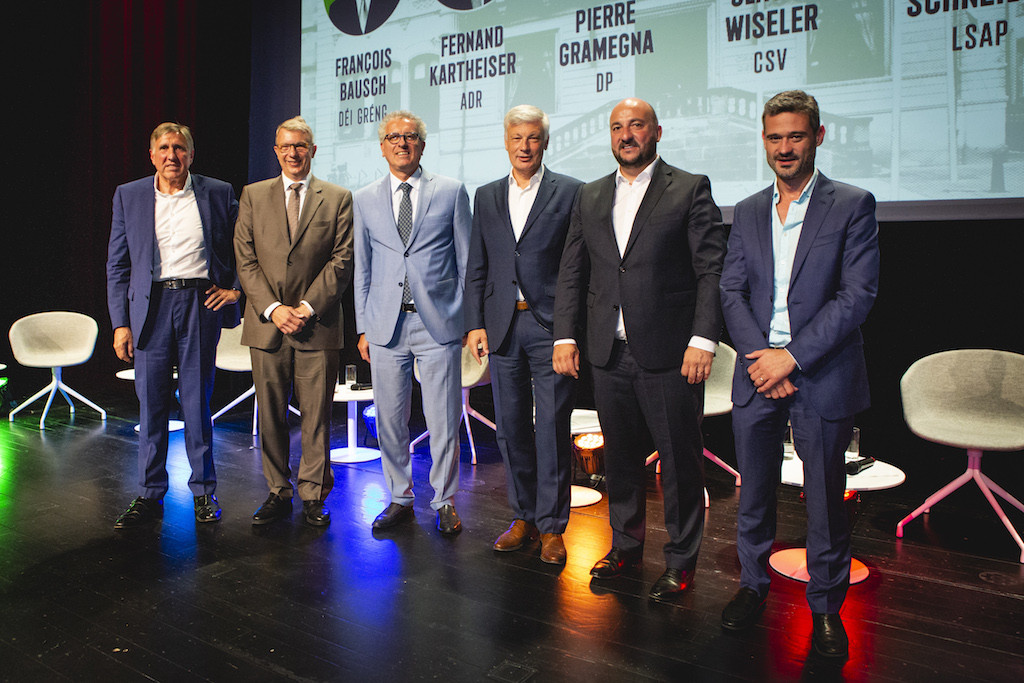Five years ago, ahead of the 2013 parliamentary election, we wrote that the LSAP’s Étienne Schneider “might just be the man to deliver the ‘breath of fresh air’ that he says the country needs in order to modernise.” Since then, the economy minister’s forward thinking and willingness to continue to stray from what had been the norm has been refreshing.
Indeed, the current government--the so-called Gambia coalition of DP, LSAP and Déi Gréng--can be praised for boosting the grand duchy’s image after the disaster of the LuxLeaks affair that blighted its first months in office.
Nowadays Luxembourg makes international headlines for its space exploration foresight and wins praise for attracting researchers and entrepreneurs in fields as diverse as biohealth and regtech. Ministers travel the world looking for new opportunities and that pays off when Chinese banks and tech companies choose Luxembourg as their European hub.
On the domestic front, finance minister Pierre Gramegna has managed to balance the budget. Corinne Cahen has introduced measures that make life easier for families with kids and long-term mobility planning under François Bausch should ease commuting in the near future.
That is not to deny that the coalition has made mistakes or failed to solve all Luxembourg’s ills. Housing, health and especially education remain seemingly impenetrable challenges in the face of market forces and intransigence from powerful interest groups. Furthermore, the decision to hold a referendum in 2015 on voting rights for foreign nationals can, in hindsight, be viewed as an unfortunate misstep by Gambia.
Hopefully the pragmatic Luxembourg electorate will not hold a grudge, much to the chagrin of the ADR which seems to take glee in reminding its audience as often as possible that it was the only party that campaigned for a “Nee” vote.
Unfortunately, though, the loud voices of nationalism have resulted in one of the less appealing aspects of this election campaign. In apparent desperation, several mainstream parties have suddenly discovered their “Luxembourgishness”. With more pressing issues at stake, the subject of national identity has been given unprecedented priority in many of the candidate debates and in parties’ communication strategies.
No natural party of power
However, the fact that this coalition has survived, and even thrived, gives credence to the opinion that the 2013 election was a political earthquake for Luxembourg. While, for the foreseeable future, the CSV is always likely to win the most seats in parliament, it can no longer regard itself as the natural party of power. Those voters claiming that the so-called Gambia coalition keeping the CSV out of government in 2013 was undemocratic should be reminded that the LSAP, DP and Déi Gréng together received 48.66% of the popular vote compared to the CSV’s 33.68%. That is democracy at work.
The question now is whether the coalition parties can do enough at the polls to stay in power and continue their modernising programme. It would be the most natural thing in the world for the Gambia coalition to wish to continue if they gain 31 seats or more.
If the election results with the CSV’s Claude Wiseler being asked to form a government, the question is with which party will it enter talks. He has already ruled out, due to ideological differences, any coalition with the right of centre ADR or the left of centre Déi Lénk, and the Pirate Party has yet to ever win a seat in parliament.
The major parties have been holding their cards close to their chest and it seems any one of three possible outcomes is still a possibility. With a few exceptions, a CSV-LSAP coalition had dominated Luxembourg politics since the 1950s before 2013 so that seems like a natural fit. The CSV and DP are ideologically closer, have worked in government before and recently joined forces, after 12 years of DP-Green alliance, to again govern the city of Luxembourg. A CSV-Déi Gréng coalition, viewed as outlandish just 10 years ago, was the favourite option among voters polled earlier this year. In a political landscape shaped by major upsets around the world over the last three years, stranger things have happened.
